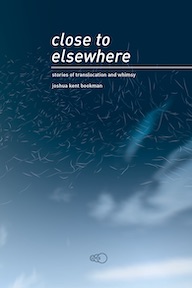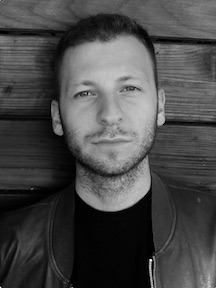By Sarah Al-Arshani
Joshua Kent Bookman (ΦBK, Brandeis University) blends a host of cultures and experiences in his new novel Close to Elsewhere: Stories of Translocation and Whimsy. The book was released this summer by Swedish publisher LYS and is available in both Swedish and English. The story follows Italian-Swedish-French-Bengali-American characters living across ten time zones simultaneously, speaking in five languages. Bookman said the book may be a product of his own adventurous life, but it’s also meant to ask a few philosophical questions.
While the book may be categorized as a novel, Bookman said he considers it a “metamorphic tool for multiculturalism in the 21st century.”
“How do you educate a world that’s many worlds and one simultaneously? I’m aware that I have the rare opportunity to create a network of connections between many cultures. That magical confluence used to be the United States,” Bookman said.
Bookman was born in New England and moved to Italy, France, and California. He has worked in villages, towns, gentrified neighborhoods, and major cities. In the process he has observed the discrete aspects of what makes a “culture”—what makes us “human”—as we are buffeted by the fluctuations in competition, globalization, and the Internet.

The author said there was value in feeling other places and understanding other people. However, another aspect that influenced his writing is the current digital age, where people can access a wide array of people and places.
“I believe we sort of collect fragments of places… It’s never a situation where you live in one place and discard that place,” he said.
The plot follows a Frenchman, Thomi, who is hired by his American girlfriend, Elisa, to help her make sense of her mother’s emigration to America. Each culture teaches the characters a discrete strategy to manage change.
“In the book I’ve integrated and borrowed events, characters, and feelings from formerly fictional works related to migration and traveling, including Italian-American Mario Puzo’s The Fortunate Pilgrim (1965) [who also wrote The Godfather (1969)] and the Swedish journalist Stig Dagerman’s short story “Sleet” [Snöblandat regn (1959)]. In “Close to Elsewhere, unexpected meetings and new interpretations occur which at the same time feel familiar,” Bookman said.
He explained that the book is written in very short, almost paragraph like chapters. That is in part because language and the way people read and talk is changing.
The author majored in literature at Brandeis University because he wanted a major that allowed him to take a diverse course load, reflecting his value for multicultural education.
Bookman said Phi Beta Kappa as an organization is valuable for supporting an environment of broad intellectual engagement.
“Phi Beta Kappa is important because we live in a highly specialized world, where we’re taught not to be generalists. That is a shame, because it is in the dimensionality of knowledge we begin to understand the world’s complexity. Phi Beta Kappa upholds the many dimensions of knowledge,” he said.
Close to Elsewhere has been reviewed in an Italian newspaper, CremaOggi and many readers have left their own reviews on Amazon and Goodreads. One Amazon reviewer called the book an “enchanting read.”
To read Close to Elsewhere is to discover a strategy of living in the 21st century that is neither a practice of mindfulness, nor an application of data science—it’s a gizmo for using all the senses to achieve a deftness of being. In this period of great instability, we have a choice to use fear, or imagination.
ΦΒΚ member Sarah Al-Arshani is a recent graduate of the University of Connecticut where she majored in journalism and political science. The University of Connecticut is home to the Epsilon of Connecticut chapter of Phi Beta Kappa.




